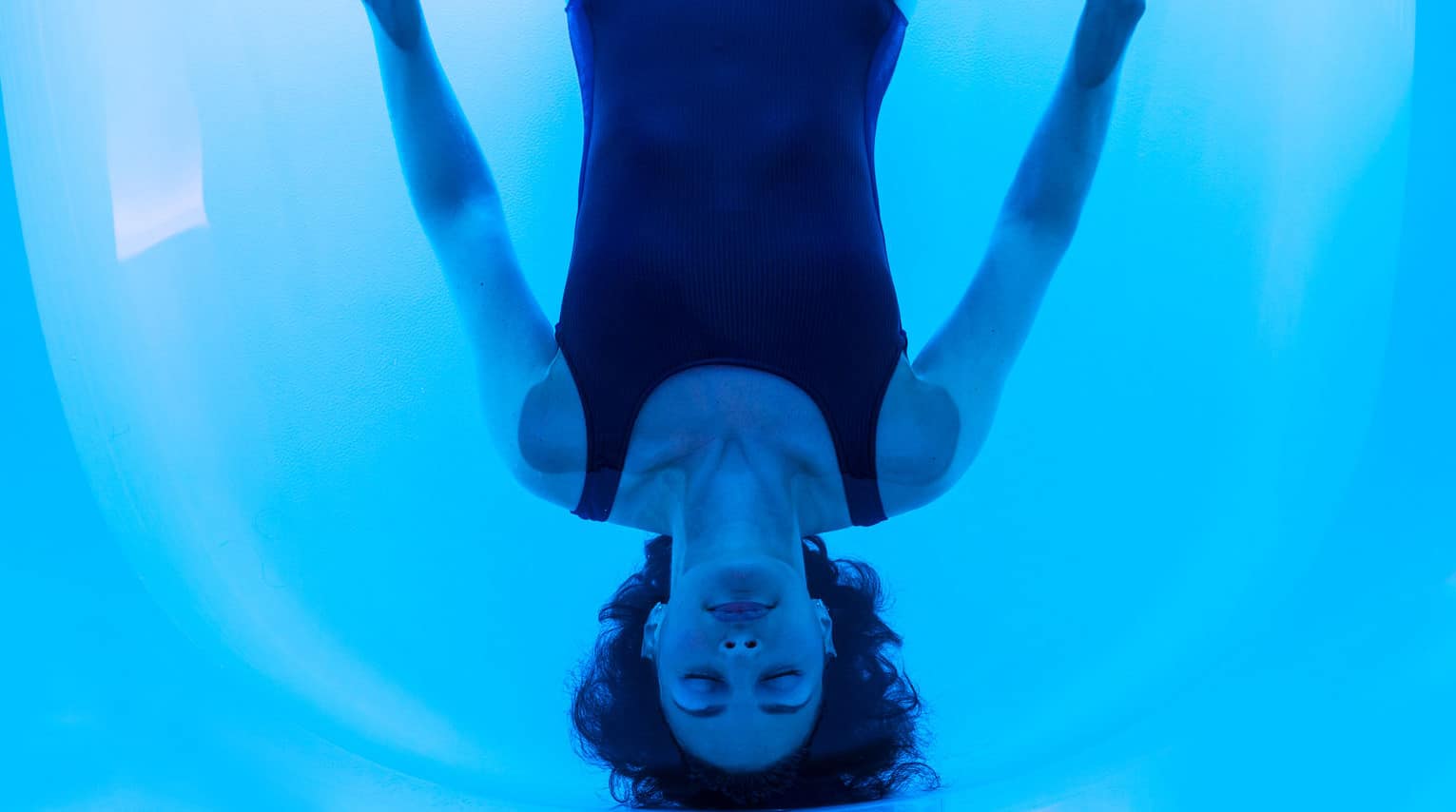I am lucky to have been introduced to floating early on in its resurgence back into the mainstream over the last decade. My first experience of being in an isolation tank back in 2012 was a powerful one and now I’ve floated more than 100 times in cities around the world.
It’s become a major part of my lifestyle and wellness routine, as well as the focus of a good chunk of my work and mission every day.
As I’m sure you can imagine, I’ve gained some insights from these sessions.
Lessons from floating in an isolation tank over 100 times
1. We all need more quality rest. I believe part of the reason why people find floating to have such a shocking ‘wow’ factor, especially in the beginning, is that it provides the most supportive environment for deeeeep rest. Likely the deepest you’ve ever had and when you pair it up with a major deficit, it hits you hard (in the best way). I have had many floats where I sleep through all or most of the session and some where I immediately need to come home and sleep more. Floating helps me avoid the deficit now.

2. Investing in yourself and your wellness brings the greatest ROI. I’ve seen so many benefits come directly and as a result of who I’m able to be thanks to my floating practice. The ROI both financially and in terms of my enjoyment in life has been the greatest out of any other tool or practice I’ve tried to date. I meditate as well outside of my sessions, which floating helps people achieve much easier, and neuroscientists are showing major benefits for the brain through meditation.
3. Our bodies and minds can do incredible things without the normal stress, fatigue and distractions of everyday life. There are high school volleyball injuries that used to cause me pain on a regular basis, lower back pain that did the same, and issues I had with my posture that are no longer a problem thanks to the unique environment of floating (decompression and lack of pressures on the body). When your body is able to rest more deeply in the isolation tank, it is able to put more energy towards restorative functions and the mind does similar things.
4. A proper floating practice, just like anything, takes discipline. I’ve fallen off and on with my floating routine many times. In the past, I would wait until I became super stressed out or overwhelmed to book my next appointment and sometimes I’d forget until it was mission critical to avoid burning out. It was once I become more strict with it that I started to see how proactive wellness and prioritizing myself in this way brought deeper, compounding benefits and allowed me to unlock new, more constant states of flow and calm in my life. Now I make sure to always have my next float booked ahead of time, and currently I’m floating at least once every week for all of 2019.
 5. We all need more silence in our lives. I believe the world is far too noisy right now as we still struggle with what is essentially still the growing pains and early stages of the Internet, social media and our constantly connected devices. There are many benefits to silence, meditation and having time to simply rest or reflect on whatever it is that you need to think through, rather than reacting and continuing to keep doing things all the time. We need to create more gaps with silence. Floating in an environment of sensory deprivation like the isolation tank, where there’s little to no sound at all, reminds me of this and helps bring it back into my life again each time.
5. We all need more silence in our lives. I believe the world is far too noisy right now as we still struggle with what is essentially still the growing pains and early stages of the Internet, social media and our constantly connected devices. There are many benefits to silence, meditation and having time to simply rest or reflect on whatever it is that you need to think through, rather than reacting and continuing to keep doing things all the time. We need to create more gaps with silence. Floating in an environment of sensory deprivation like the isolation tank, where there’s little to no sound at all, reminds me of this and helps bring it back into my life again each time.
This isn’t an exhaustive list and I’m certain I’ll gain more insights along the way as my floating practice continues, especially throughout 2019 which will end up being my longest streak of a weekly practice.


